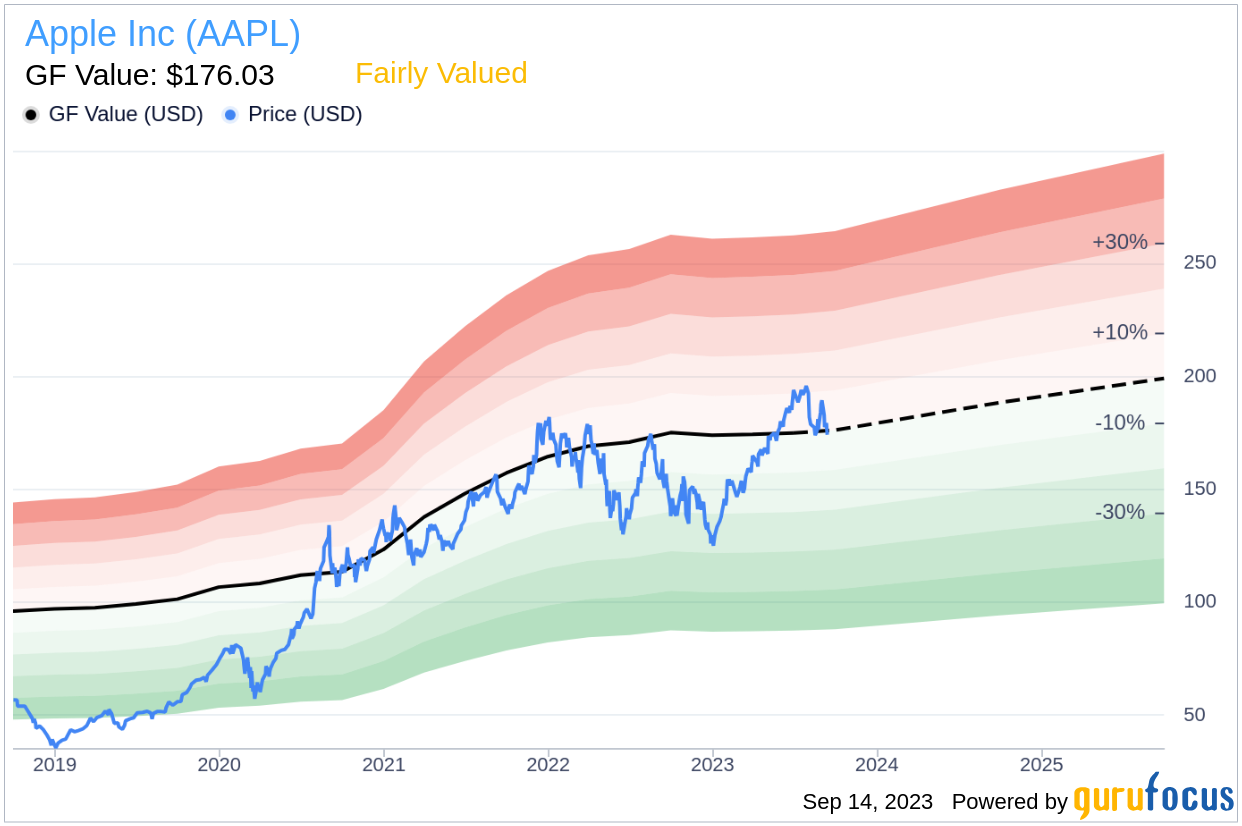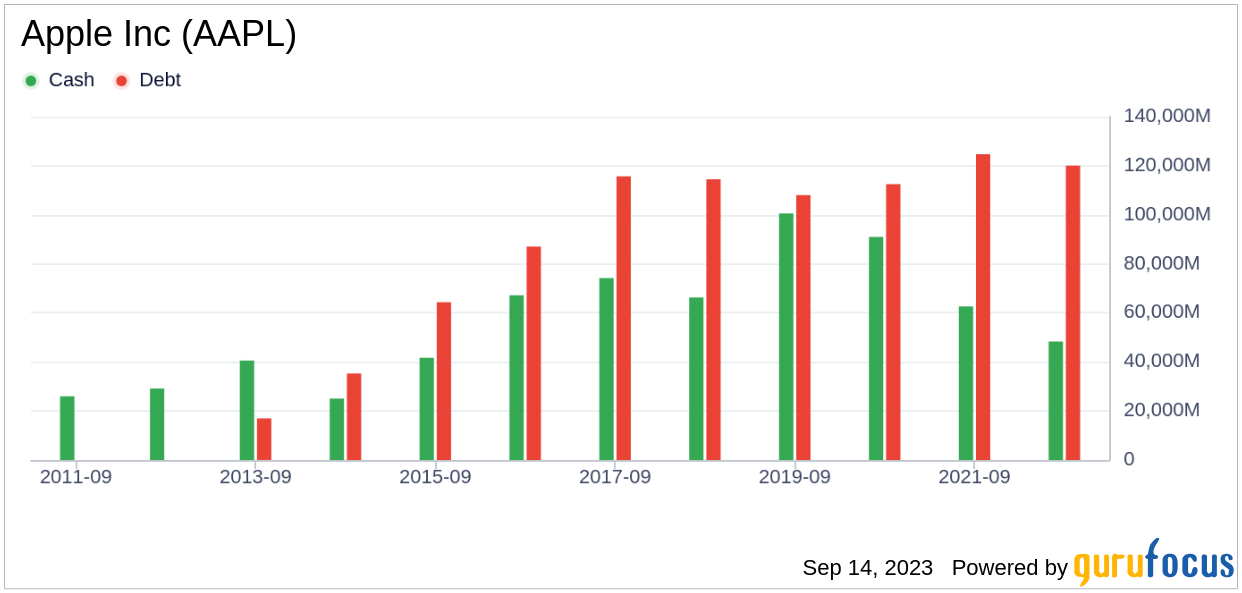Apple Inc (AAPL, Financial) has seen a daily gain of 0.34%, but a 3-month loss of -4.78%. With an Earnings Per Share (EPS) (EPS) of 5.95, the question arises: is the stock fairly valued? This article aims to provide a comprehensive analysis of Apple's valuation, encouraging readers to delve into the financial intricacies of one of the world's most influential tech giants.
Company Overview
Apple Inc (AAPL, Financial) is a global leader in consumer electronics, known for its innovative products like the iPhone, iPad, Mac, Apple Watch, and AirPods. The company also offers a range of services, including Apple Music, iCloud, Apple Care, Apple TV+, Apple Arcade, Apple Fitness, Apple Card, and Apple Pay. Apple's unique integration of hardware, software, semiconductors, and services sets it apart in the tech industry. The company's products are distributed online, through company-owned stores, and third-party retailers.
As of September 14, 2023, Apple's stock price stands at $174.8, with a market cap of $2.70 trillion. The company's fair value, according to the GF Value, is estimated at $176.03, suggesting that the stock is fairly valued.
Understanding the GF Value
The GF Value is a proprietary measure that represents the current intrinsic value of a stock. It is calculated based on historical trading multiples, a GuruFocus adjustment factor based on past performance and growth, and future business performance estimates. The GF Value Line provides an overview of the fair value at which the stock should ideally be traded.
According to the GF Value, Apple (AAPL, Financial) is fairly valued. This suggests that the long-term return of its stock is likely to be close to the rate of its business growth.
Financial Strength
Investing in companies with poor financial strength can lead to a higher risk of permanent capital loss. Therefore, it's crucial to review a company's financial strength before investing. Apple's cash-to-debt ratio stands at 0.57, which is lower than 69.92% of 2374 companies in the Hardware industry. However, GuruFocus ranks Apple's overall financial strength at 7 out of 10, indicating fair financial health.
Profitability and Growth
Investing in profitable companies, especially those with consistent profitability over the long term, is generally less risky. Apple has been profitable 10 years over the past decade. With an operating margin of 29.23%, Apple ranks better than 97.83% of 2443 companies in the Hardware industry. This indicates strong profitability.
Growth is a crucial factor in a company's valuation. Apple's 3-year average revenue growth rate is better than 86.01% of 2337 companies in the Hardware industry. Furthermore, Apple's 3-year average EBITDA growth rate is 22.8%, ranking better than 69.49% of 1963 companies in the Hardware industry. This indicates strong growth.
ROIC vs WACC
Comparing a company's return on invested capital (ROIC) and the weighted average cost of capital (WACC) can provide insights into its profitability. Apple's ROIC stands at 31.88, and its WACC is 11.2, indicating that the company generates a higher return on its invested capital than its cost of capital.
Conclusion
In conclusion, Apple's stock is believed to be fairly valued. The company's financial condition is fair, its profitability is strong, and its growth ranks better than most companies in the Hardware industry. For more detailed financial information about Apple, you can check out its 30-Year Financials here.
To discover high-quality companies that may deliver above-average returns, check out the GuruFocus High Quality Low Capex Screener.




